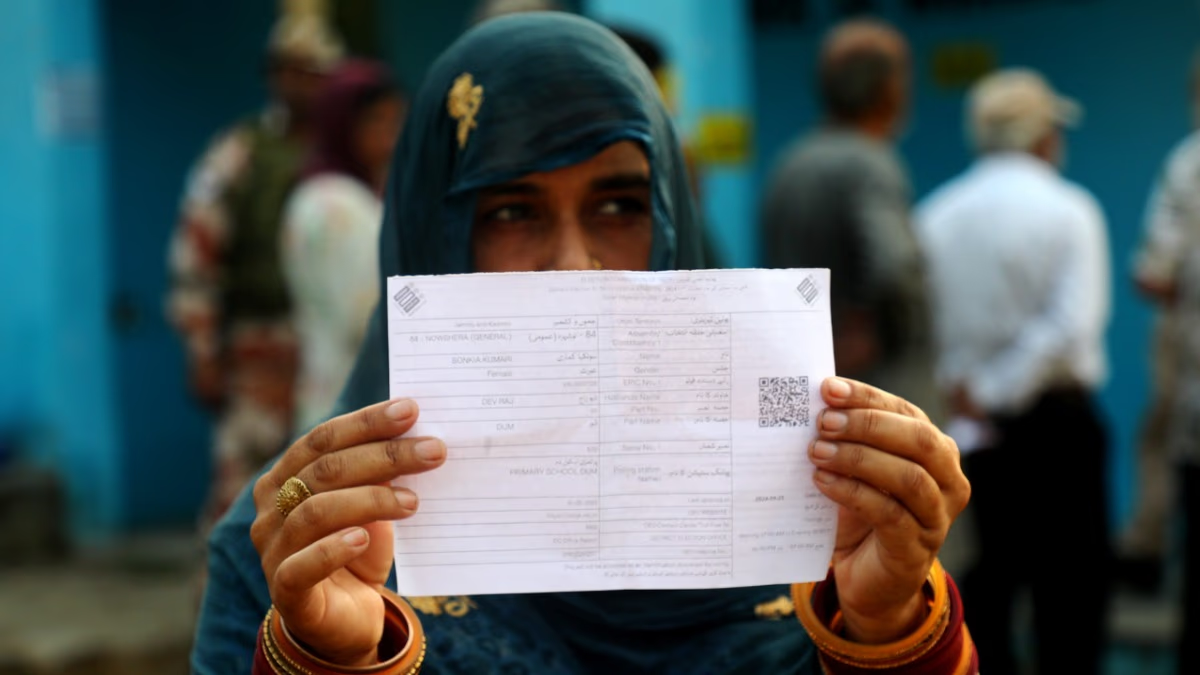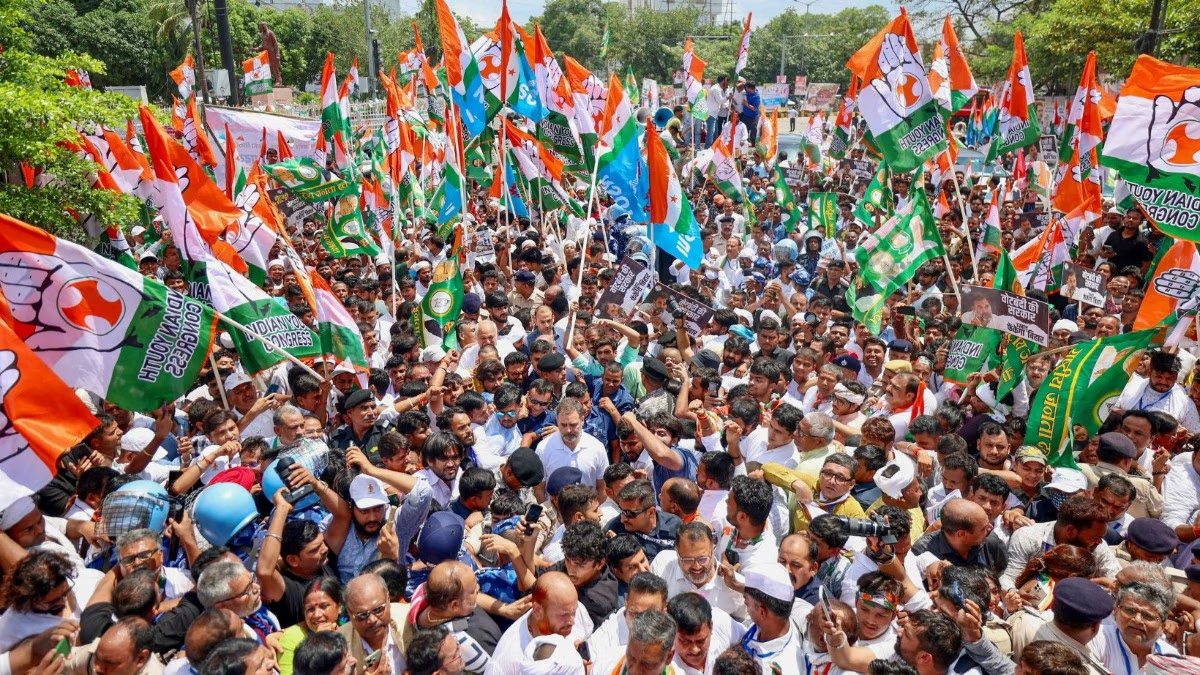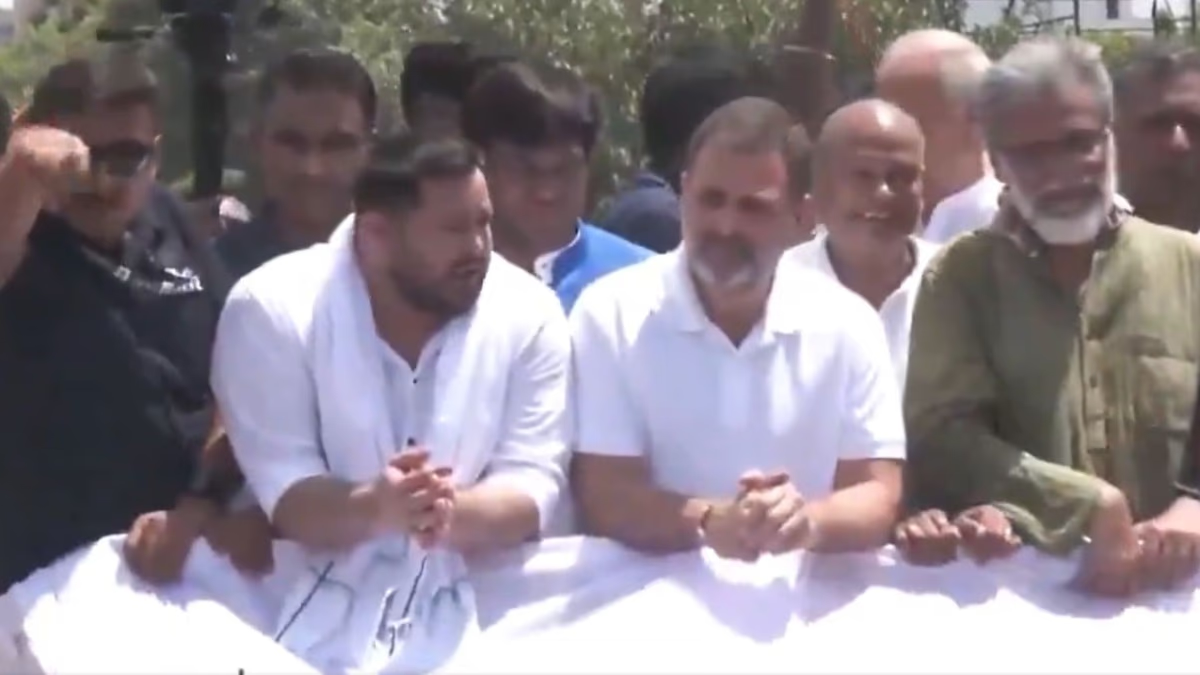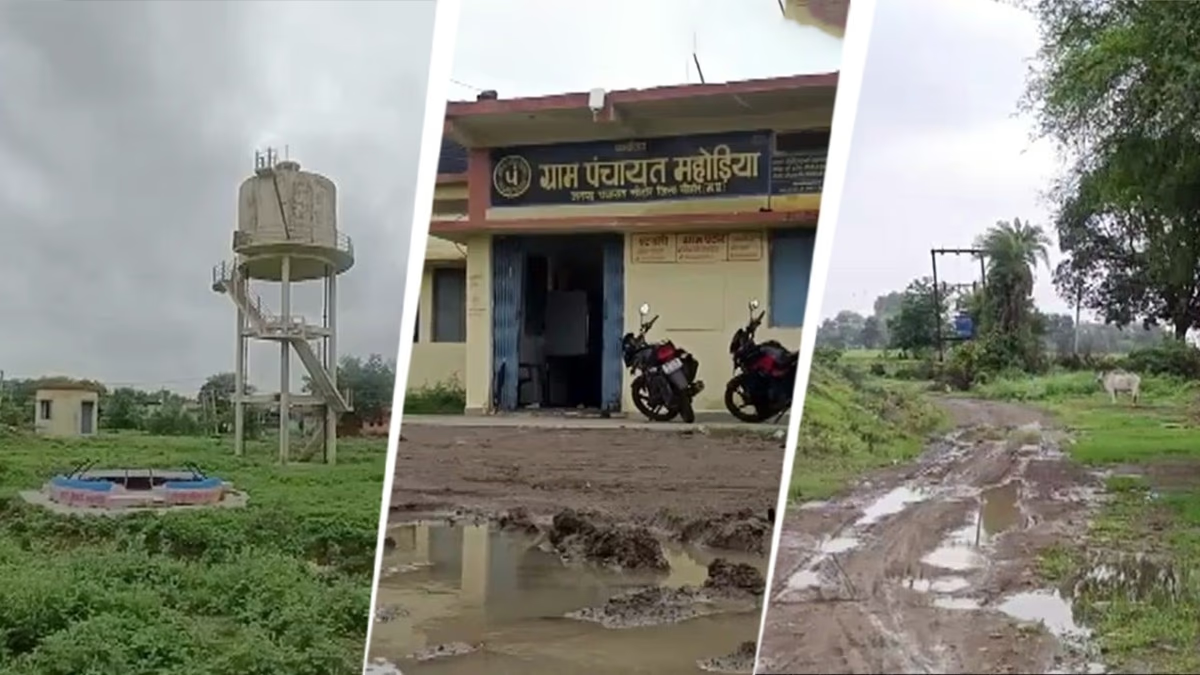The Election Commission's decision to revise voter lists nationwide has sparked substantial political controversy, starting just before the Bihar assembly elections. The Commission aims to remove non-citizens from the voter lists, raising the question: How did non-citizens become voters in India? The answer lies within Form 6.
Issued by the Election Commission, Form 6 is used by Indian residents aged 18 or above to register as voters in their locality.
Controversy Over Voter List Scrutiny
While the Election Commission is making efforts to exclude non-citizens from voter lists using Special Intensive Revision (SIR), Form 6's shortcomings are under fire. Applicants are not required to provide documents affirming their Indian citizenship. Only proof of birth date, address, and a declaration suffice.
Read More:
Provisions for Form 6 are outlined in the Voter Registration Rules, 1960. As part of SIR, the Election Commission is conducting a house-to-house survey in Bihar. India's voter lists last underwent such extensive revision in 2003-2004, with usually only summary revisions taking place since then. SIR represents a more thorough verification and cleanup of voter lists.
Illegal Immigrants Turned Voters
The opposition has taken this matter to the Supreme Court, although it was the Congress that first raised concerns about the voter list after the 2024 Maharashtra elections. Only Indian citizens should be allowed to decide the country's course, ensuring that illegal immigrants are not granted the right to vote.
Then-Minister of State for Home Affairs Kiren Rijiju informed Parliament in 2016 about two crore illegal Bangladeshi immigrants in India. Illegal immigration has altered the demographics of numerous districts nationwide. Regular intense revision of voter lists is indispensable to eliminate infiltrated illegal immigrants from voter lists. Importantly, ensuring non-citizens do not become voters is critical.
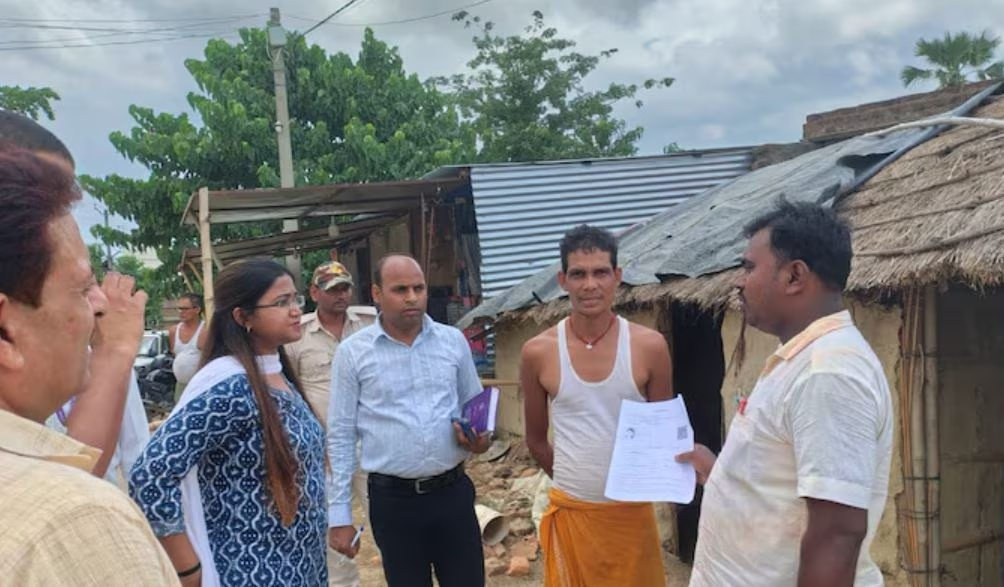
Source: aajtak
A former Chief Election Commissioner (CEC) revealed to India Today Digital that re-evaluating the entire electoral process is necessary, given the influx of illegal immigrants over decades. In pursuit of official feedback from the Election Commission's Director-General (Media) on voter registration, India Today Digital has not yet achieved results.
Form 6 and Aadhaar in New Voter Registrations
Under meticulous voter list scrutiny, the Election Commission released a list of 11 documents on June 24, one required to prove citizenship. Identification documents issued by the government or pension payment orders, birth certificates, passports, matriculation certificates, residence, caste, or forest rights certificates are among the 11 documents.
Read More:
This list omits commonly used identification tools across India, including Aadhaar, PAN, and driving licenses. The explanation is that while Aadhaar and other documents verify identity, they do not confirm citizenship. Nevertheless, Aadhaar is a document that can be used in Form 6.
Citizenship Certificate Not Required
Political strategist and commentator Amitabh Tiwari states, 'Form 6 for new voter registration doesn't demand any citizenship-related documents. It's solely based on a citizenship declaration.' Tiwari, founder of Ascendia Strategies, noted to India Today Digital, 'Aadhaar can be provided as birth date and address proof, mentioned six times in the entire document [Form 6], with citizenship mentioned twice.'
The Supreme Court review of the Election Commission's list of 11 documents and timing linked to elections in Bihar is ongoing, with opposition citing proximity to the polls. Political parties have raised concerns about the exclusion of daily-use documents like Aadhaar from SIR.
RJD leader Tejashwi Yadav argues that, in addition to ration and MGNREGA cards, Aadhaar should be permissible as birth location verification for SIR. According to a report by The Indian Express, Aadhaar is among the most available documents in several Bihar districts.
How to Become a Voter in India?
Beyond annual updates or summary revisions, extensive campaigns are conducted before each election to register new voters. Booth Level Officers (BLOs) must submit Form 6 to Electoral Registration Officers (EROs), who determine the final list.
Prior to elections, party block-level agents (BLAs) join, incentivized by helping register applicants as voters, boosting their party's chances. Experts argue that the newcomer voter registration process morphs into a sales target-driven task.
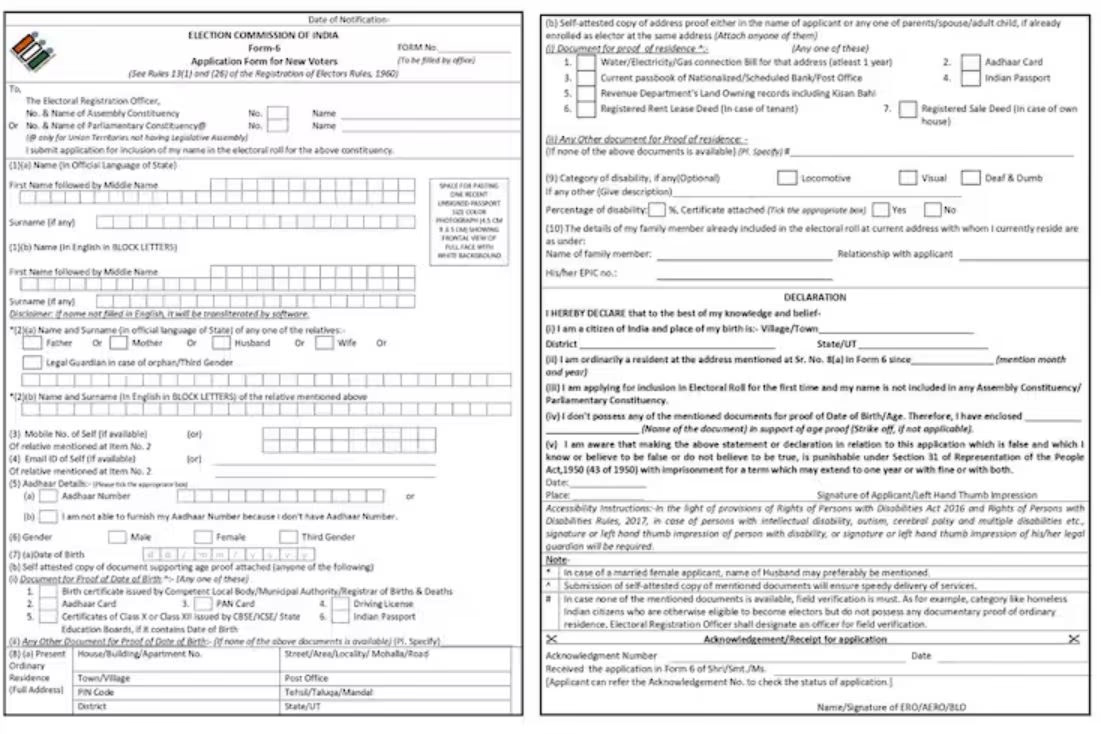
Source: aajtak
A former Chief Election Commissioner mentioned to India Today Digital, on the condition of anonymity, 'When Form 6 was introduced in 1952, no one anticipated such a large-scale influx of illegal immigrants.' They noted, 'It's well known that non-citizens use Aadhaar for integrating into the electoral system.'
Read More:
The former CEC emphasized linking Aadhaar numbers to Electronic Electoral Photo Identity Cards (EPIC) as an attempt to eliminate duplicate and multiple voting entries.
Why Verify Voters’ Citizenship?
The government aims to leverage Aadhaar to combat voter fraud. However, using Aadhaar via Form 6 to enroll as voters may allow non-citizens into voter lists.
The former CEC stated that mechanisms must be developed to prevent non-citizens from appearing on voter lists. They emphasized, 'Form 6 should be amended and the entire electoral framework reevaluated to block non-citizens from election participation.'
Easing Registration via Aadhaar
Ironically, registering as a voter via Aadhaar is relatively straightforward, highlighted by RJD leader Tejashwi Yadav while criticizing SIR. He questioned, 'My wife, previously a voter in Delhi, obtained her voter ID in Bihar based on Aadhaar after marriage. Why is Aadhaar excluded from the list of required documents for SIR in Bihar?'
Read More:
The Election Commission acknowledged in a Times of India report on July 6 that an Aadhaar card is neither proof of birth date, birth location, nor citizenship. Former Chief Election Commissioner Ashok Lavasa stated to India Today TV that Aadhaar is not sufficient to prove citizenship per the Aadhaar Act.
As this debate unfolds, Bhuwanes Kumar, CEO of the Unique Identification Authority of India (UIDAI), emphasized that Aadhaar has never been a primary identity source. During a special interaction with India Today, Kumar elaborated on UIDAI's measures tackling the fake Aadhaar generation industry.
Pressure to Expand Voter Count
Rigorous voter list review is essential to verify the authenticity of those registered for voting. Careful check before voter registration is critical since India tackles a significant illegal immigration issue, demanding vigilance in registration workflows.
In pointing out 'weak criteria' for first-time voter nominations, Amitabh Tiwari asserts, 'System tightening at entry points requires as ECI and other bodies' constant pressure to expand voter lists.' Tiwari advocates requiring citizenship proof alongside merely a declaration for new voters.
While the Supreme Court reviews the revision process in Bihar, now is an opportune time for India to strengthen its voter registration process, ensuring non-citizens do not influence its fate.
